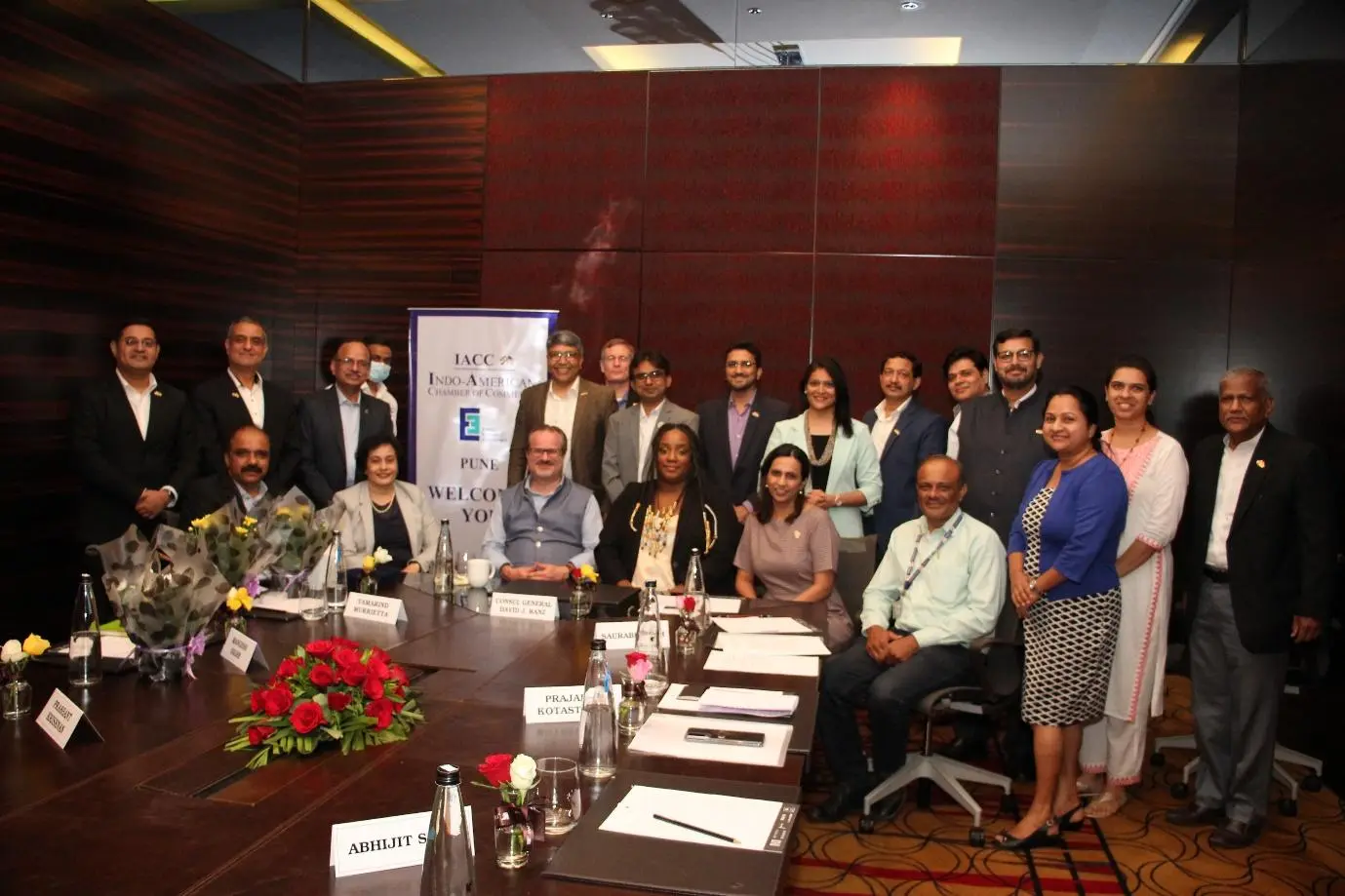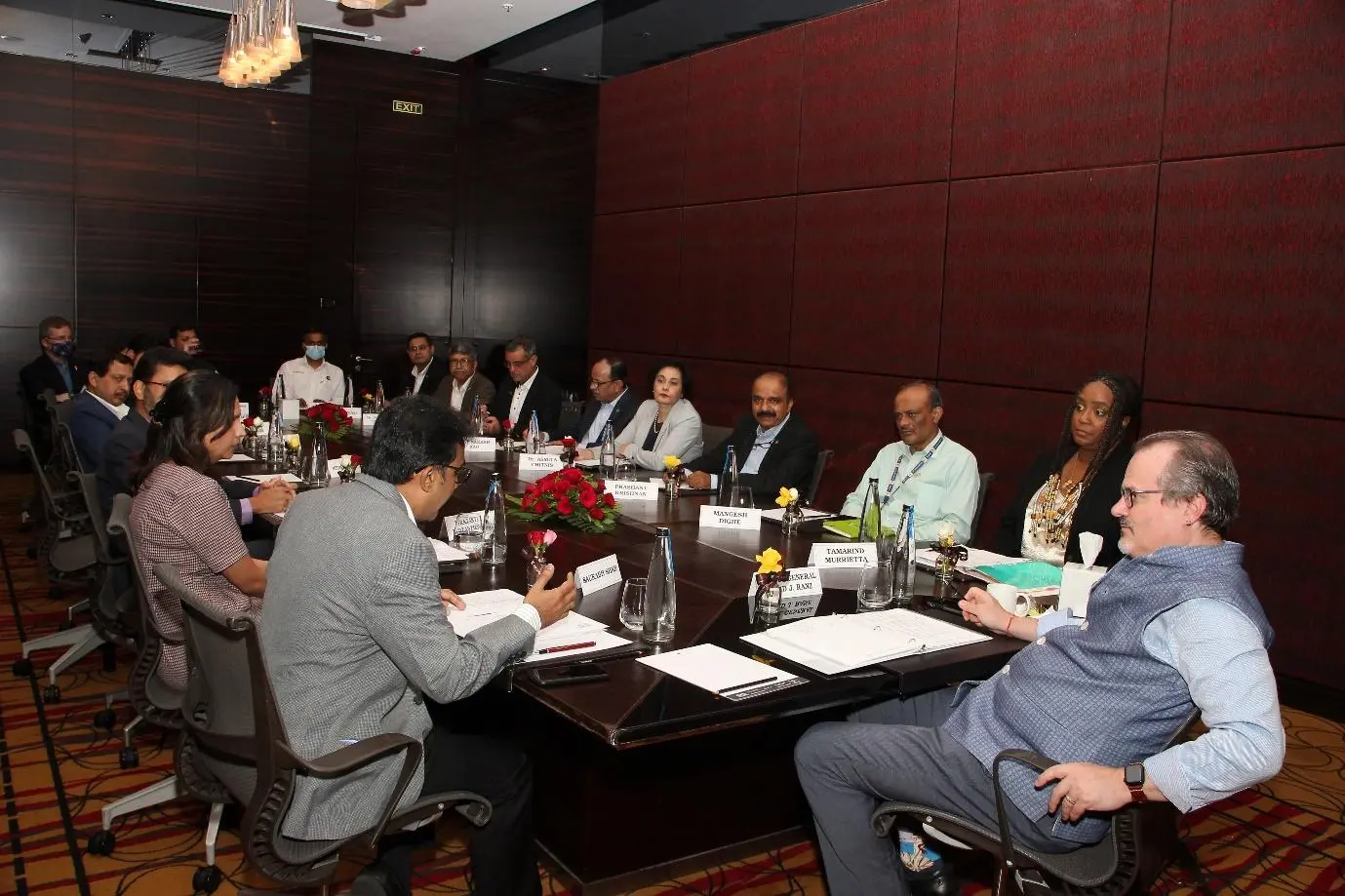SAP SE
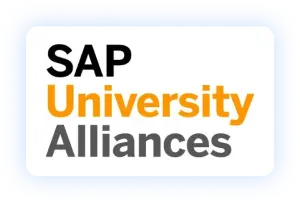
SAP SE is an established global standard for enterprise resource planning (ERP) software. SIIB is a member school of SAP-UAP (University Alliance Programme), India which enables academia to educate the next generation on the Intelligent Enterprise and the experience economy, engage at SAP events, build industry partnerships, and prepare graduates for the SAP ecosystem. This program offers adequate knowledge and training to students on the business process through various SAP functional modules like FICO (Financial Accounting and Controlling), MM (Material Management), and SD (Sales and Distribution) using the SAP S4HANA system with a predefined dataset. Students who successfully complete the course get a Joint Certificate of participation from SAP UA India and SIIB. SAP Learning Hub, Edition for Next-Gen certification is created for students and lecturers at SAP University Alliances member institutions and this digital offering provides the learning resources you need to build skills and prepare for a career in the SAP ecosystem.
SPSS
SPSS (Statistical Package for the Social Scientists) is a data management and statistical analysis tool which has a very versatile data processing capability. Because of its popularity within both academic and business circles, it has been an integral pan of SllB’s course curriculum for a very long time. The use of SPSS in subjects like Market Research and Operations Research allows for many different types of analysis, data transformations, and forms of output.
Six Sigma Green Belt
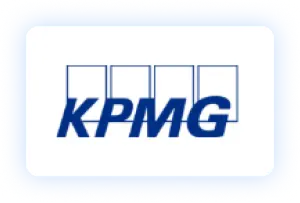
Six Sigma is a rigorous, focused, and highly effective implementation of proven quality principles and techniques. It focuses on defect prevention, cycle time reduction, and cost savings. Six Sigma helps students focus on improving quality (and therefore reducing waste) and thereby helping Six Sigma organizations produce products and services better, faster Green Belt, and cheaper. At SIIB, courses like Quality Management and Six Sigma are incorporated and every student is certified in Six Sigma offered by KPMG.
Marketplace Simulations
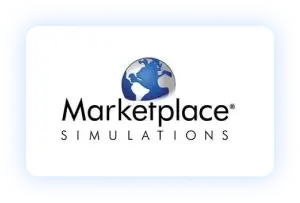
Simulation is a powerful yet entertaining way to learn how to compete in a fast-paced market where customers are demanding, and the competition is working hard to take away your business. Not only is it a motivational learning experience, but a transformational one as well.
Students @ SIIB, learn a subject entitled “Advanced Strategic Management” through the Capitalism simulation, students work in teams of four to five to experiment with business strategies and compete with other participants in a virtual business world filled with tactical detail. They deal with business concepts and the interplay among marketing, sales management, production, human resource, finance, accounting, and team management. Students take control of a new company and manage its operations through several decision cycles. Repeatedly, they must analyse a situation, plan a strategy to improve it, and then execute that strategy out into the future. They face great uncertainty both from the outside environment and from their own decisions. Incrementally, the students learn to skilfully adjust their strategy as they discover the nature of real-life decisions, conflicts, trade-offs, and potential outcomes. Student teams expand their operations and take on new tasks and responsibilities over 6 decision rounds representing 1.5 years of compressed time. They will evaluate the opportunity, choose a business strategy, evaluate tactical options, and make a series of decisions with Conscious Capitalism in mind. Their decisions are then weighed against the decisions of their competitors in the Marketplace simulator. Results are quickly fed back to the teams and the next round of decision-making begins. By design, the simulation requires that each quarter’s activities build upon prior content so that there is considerable opportunity to learn which actions drive performance up or down. By design, the simulation repeatedly challenges the students in cash flow planning, value creation in product design, pricing, media planning, search engine marketing, distribution, profitability analysis, production scheduling, human resource management, conscious capitalism, and strategic planning and management. The repetitive nature of the exercise works in their favour.
By design, the simulation makes competition key. The competitive excitement of the game is infectious. Winning requires that each team knows more and acts faster than the competition. Knowing that the competition is also working hard to win will catch all the players in an upward spiral of excellence. We see it all the time. Simulation is offered in Sem III, to all the three IB, AB & EE divisions’ students.
Roundtable Discussion by Indo American Chamber of Commerce (IACC)
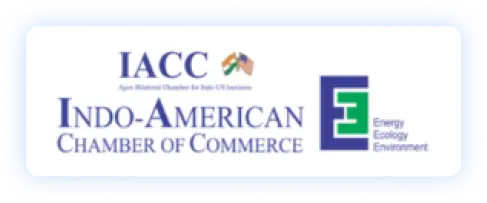
The Indo-American Chamber of Commerce (IACC), Pune held a roundtable discussion on the 3rd of March, 2022 on the topic “Accelerating Climate Action in the Automotive and SME Sector: Challenges and Opportunities”.
The Roundtable discussion was organised with the US Consul General Mr. David J. Ranz and Senior Industry representatives from the Automotive and SME sector.
SIIB was the “Knowledge partner” for the said Event and provided the background and context for the deliberations.
India stands at the cusp of technology revolution where climate change as a global environmental issue; continues to pose challenges and opportunities for moving the world into a social and equitable order. The energy sector is the source of around three‐quarters of greenhouse gas emissions today and holds the key to averting the worst effects of climate change, perhaps the greatest challenge humankind has faced.
Industry consumes a mix of coal, oil, natural gas, electricity and biofuels, with fossil fuels together representing 56% of total consumption (not counting electricity production). India is rapidly progressing its policy measures aimed at modal shift (to rail) and alternative fuels, including biofuels and renewable energy sources.
Automobile sector is a key driver of India’s economic growth and the largest contributor to the manufacturing sector. The transport sector accounts for 24% of Global CO2 emissions from fuel combustion, with most coming from passenger vehicles including buses and taxis.
And without immediate action, its share could reach 40% by 2030. The Indian transport sector is and will be dominated by road transport (65%) over other modes of transportation due to flexibility in operation and better road infrastructure in India.
The deliberations at the Roundtable covered key areas like –
- The emergence of developed economies and the sustainable growth model
- Immediate and massive deployment of all available clean and efficient energy technologies
- The EV Ecosystem
- Bio – CNG technology
- Sustainable mobility as the future direction
- Financing options for sustainable transport
- Policy and Technology directions including aspects related to Battery swapping policy, Hydrogen economy, Bio CNG as a disruptive technology, Meeting net zero targets of Govt of India
- Smart cities
- Regulatory and policy changes
Overall, the deliberations at the event were fruitful discussions and the attendees received not just food for thought but a future course of actions too.
